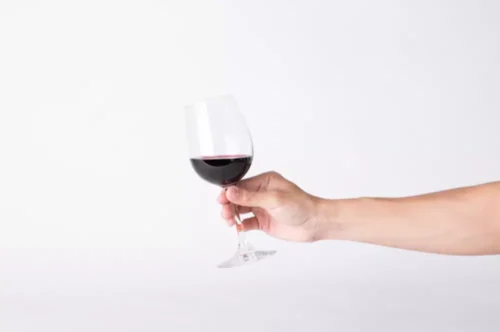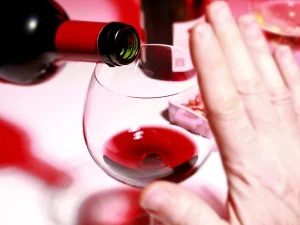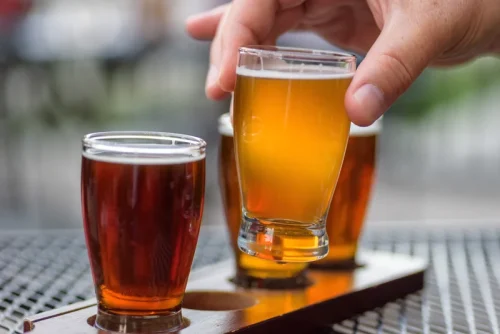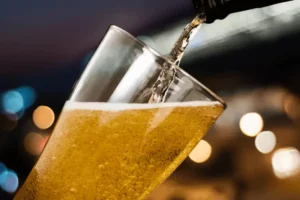
Social withdrawal is another indication that an alcoholic has relapsed. Individuals who are sober but have an alcohol use disorder often feel the need to isolate themselves when they begin drinking again, to avoid shame from their loved ones and recovery community. Another sign of self-isolation is failing to follow through on plans and personal responsibilities. This is often obvious to the people in the individual’s life who support him or her the most in recovery.

How to Get Sober: A Guide to Sobriety
- People in recovery generally agree that abstinence is necessary but remains just a starting point for a new, sober life.
- Whether choosing complete abstinence or attempting moderation, being mindful of potential pitfalls and triggers is crucial to maintaining sobriety.
- Patients can and do drink while taking naltrexone, but it is less pleasurable, and they also take Naltrexone to prevent or decrease anticipated likely drinking events.
- When someone has an alcohol use disorder, they can’t control their drinking and continue to drink even with negative side effects.
- Attempting to drink alcohol after achieving sobriety can be a dangerous path.
First, rather than viewing your relapse as a sign of failure, accept it as a step in your journey to sobriety that signals you need to revise your recovery approach. Death caused by alcohol poisoning, motor vehicle or other accidents, violence, suicide, and alcohol-related diseases make alcohol abuse the third most preventable cause of death in the United States. This not only affects your physical health but also your mental and emotional well-being. Plus, the guilt and shame that often accompany a relapse can be overwhelming and make it even more challenging to get back on track.
Tips to Stay Sober
Managing cravings and triggers is a crucial aspect of maintaining sobriety, as they can lead to relapse if not addressed properly. By staying mindful of the following factors, individuals can develop effective coping strategies to resist the urge to drink. With the right support and strategies in place, individuals can confidently participate in social events without compromising their sobriety and can stay sober even without AA, for example.
Success Stories: Medication-Assisted Treatment Works!

Take some time to decide which days are OK to have a drink and which days are off-limits. For many people—including most of our survey respondents—medication-assisted treatment opens the door to a better, healthier relationship with alcohol. In answering some of our additional questions, many respondents gave glowing endorsements of how MAT has changed their lives, and helped them overcome problem drinking.
This can include toxic relationships in which you feel unheard, misunderstood, unsupported, demeaned, unsafe, and/or attacked. You may again seek out the people and situations that support your alcohol use. Some people who move from a controlled and protective setting find themselves awash in the environmental cues that lead to their drinking. Triggers https://ecosoberhouse.com/ for using drugs and alcohol typically are people, places, and things that remind you of your addictive behavior or encourage the use of substances you’re avoiding. This article will describe sobriety in more detail, the challenges a person faces while working to stay sober, the options for treatment, and tips for building a sober lifestyle.
Inquire About Medication

If you can recognize the warning signs of each stage, you can take action to avoid a relapse. At United Recovery Project, our holistic approach to addiction treatment centers around addressing and healing theunderlying issues at the root of addiction. At Genesis Recovery, drinking again after sobriety we are here to answer all your questions regarding alcohol use disorder, the process of recovery, and the slip-ups that come along with it. Start socializing without alcohol by engaging in alternative activities, and conversations and focusing on the present moment.
Absorbing all you can on the topic can help you reach a deeper level of understanding and compassion. The very first sign that something is amiss is a return to addictive behavior. The recovering alcoholic may start to behave erratically without ever touching a drink.

We offer the highest level of skilled care in a calm, comfortable environment. The dangers of relapse include potentially severe physical and mental reactions when substance use resumes. Don’t let this situation or cravings make you feel down or like you haven’t achieved something amazing already. You can work on strengthening your coping skills to move past a mental relapse. Working with a therapist can be helpful during a period of mental relapse. If you find yourself in an emotional relapse, try to learn more about how you can practice self-care.
